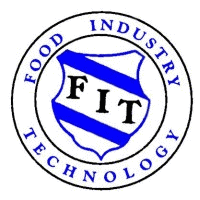Boost Your Collagen Intake Natural Food Sources
Share
What is Collagen?
Collagen is a protein that makes up a significant part of our skin, hair, nails, and joints. It is responsible for maintaining the strength and elasticity of these tissues. Collagen is produced naturally in the body but starts to decline as we age, leading to wrinkles, brittle nails, and joint pain. (1)
There are different types of collagen in the body, each with its unique structure and function. Type I collagen is the most abundant type found in the skin, bones, tendons, and ligaments. Type II collagen is mainly found in cartilage tissue and helps cushion joints. Type III collagen is present in many organs and tissues like blood vessels and muscles.
While our bodies can produce collagen on their own, external factors like poor diet, sun exposure, smoking, and pollution can damage collagen fibers. This damage can lead to premature aging signs like wrinkles and sagging skin or even more severe conditions like osteoarthritis.
That's why many people turn to supplements or skincare products containing collagen to boost their levels of this vital protein. However, not all collagens are created equal!
Foods that are naturally high in collagen
While collagen supplements are a popular way to boost your body's collagen production, there are also many foods that contain high amounts of this essential protein. Some of the best natural sources of collagen include bone broth, chicken, fish, and egg whites. (2)
Plant-based sources of collagen-boosting nutrients include leafy greens, nuts, seeds, and fruits rich in vitamin C. Incorporating these foods into your diet can not only improve your overall health but also help support your body's natural production of collagen. So next time you're at the grocery store, consider adding some of these nutrient-dense foods to your cart!
Animal-Based vs. Plant-Based Collagen Supplements
While animal-based collagen supplements have been the most popular choice for many years, plant-based options are gaining popularity due to ethical and environmental concerns.
Animal-based collagen supplements are typically made from the bones, skin, and connective tissues of cows, pigs or fish. These sources of collagen tend to be rich in type 1 and type 3 collagen, which are essential for maintaining healthy skin and joints.
On the other hand, plant-based collagen supplements are made from ingredients that contain nutrients that support our body's natural production of collagen. These include vitamin C, zinc, copper, and amino acids such as glycine and proline.
While plant-based sources don't actually contain collagen themselves, they can still be effective at boosting our body's natural production of this essential protein.
Another advantage of plant-based sources is that they tend to be more sustainable and environmentally friendly than animal-based sources. This is because animal agriculture has a significant impact on greenhouse gas emissions and water usage.
Overall, both animal-based and plant-based collagen supplements can be effective at supporting healthy aging and improving skin health. However, it's important to choose a supplement that aligns with your values and dietary preferences. If you're concerned about environmental impact or animal welfare issues associated with animal agriculture, then a plant-based option may be the better choice for you.
(1) https://www.hsph.harvard.edu/nutritionsource/collagen/
(2) https://www.healthline.com/nutrition/collagen
